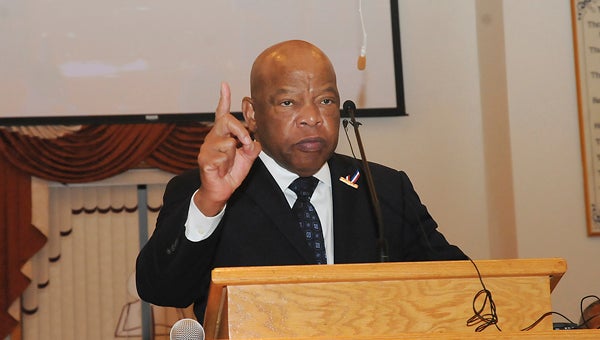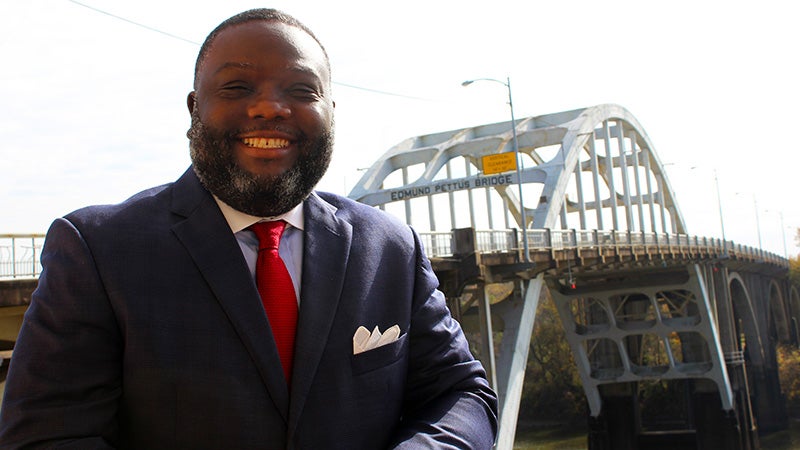Bentley considers Medicaid expansion
Published 11:23 pm Thursday, November 12, 2015
By Kim Chandler | The Associated Press
MONTGOMERY (AP) — The conservative Republican governor of Alabama, a Deep South state where “Obamacare” is often reviled, said Thursday that his administration is mulling an expansion of the state’s Medicaid program under the federal health care law.
Gov. Robert Bentley, a dermatologist turned governor, emphasized that he was in the exploratory stages — and said funding the state’s share of costs could be a stumbling block — but his comments were the strongest to date about the possible acceptance of expansion dollars in the deeply red, high-poverty state.
“We are looking at that. We have not made a final decision on that yet, exactly how that would work,” Bentley said Thursday in response to an audience question about expansion after a speech at a legal conference.
“I am concerned about the plight of the working poor … If doctors are not paid for seeing those patients, doctors will not go to rural Alabama because you can’t expect a doctor to go to rural Alabama and lose money,” Bentley said.
The move, if successful, would bring Medicaid expansion to the center of the Republican-dominated Deep South, a region that has previously been a swath of resistance.
Judy Solomon of the Center on Budget and Policy Priorities, which advocates for low-income people, said she believes governors are pragmatic and want their states to get federal dollars that are now flowing to other states.
A handful of Southern Republicans are now saying they could support waiver programs that give states some leeway to design their own programs. In Louisiana, another hold-out state, Republican and Democratic gubernatorial contenders say they could support an expansion, some with conditions.
Bentley earlier this year said he could support a state program that required recipients to work and pay premiums. Montana this month become the 30th state to expand Medicaid after federal health officials approved a requirement for beneficiaries to pay premiums that amount to 2 percent of their income.
Medicaid expansion is a key part of President Barack Obama’s health care law. However, a U.S. Supreme Court ruling made it optional for states. Thirty states plus Washington, D.C., have expanded Medicaid. Six have done so with federal waivers.
An estimated 300,000 people in Alabama would be eligible for Medicaid expansion, designed to cover people with incomes at or below 138 percent of the federal poverty level. That’s about $16,000 per year for an individual and $33,000 for a family of four.
However, Bentley said Thursday that funding the state’s share of costs— which would eventually rise to 10 percent in 2020— could pose a challenge. Tax hikes rank about as low as Obama’s Affordable Care Act among conservative politicians. The Alabama Legislature this year largely rejected Bentley’s call for tax increases.
“If we were to accept that you have to realize that it’s going to cost the state of Alabama over the next six years, $710 million dollars in the general fund — folks, I can’t even get them to raise $100 million so we’ve got to look at a funding stream for that if we are going to do it,” Bentley said.
In response to another question about funding government, Bentley said he expects a lottery to be proposed in the Legislature and said that “might” be something in his long-term plans.
Bentley has at times butted heads with members of his own party on issues from raising taxes to taking down Confederate flags that once dotted the Alabama Capitol grounds. The suggestion of expansion brought prompt, harsh criticism from some Republicans.
“It’s a terrible idea. We can’t afford the government we have now,” said GOP Sen. Trip Pittman, who chairs the state Senate budget committee.
Democrats have argued that Alabama, one of the nation’s poorest states, should not reject Medicaid expansion help.
Rep. Darrio Melton, a Democratic legislator from Selma, said Alabama has hundreds of thousands of people who go to work every day but cannot afford health insurance.
“This is not political. You are dealing with people’s lives,” Melton said.



